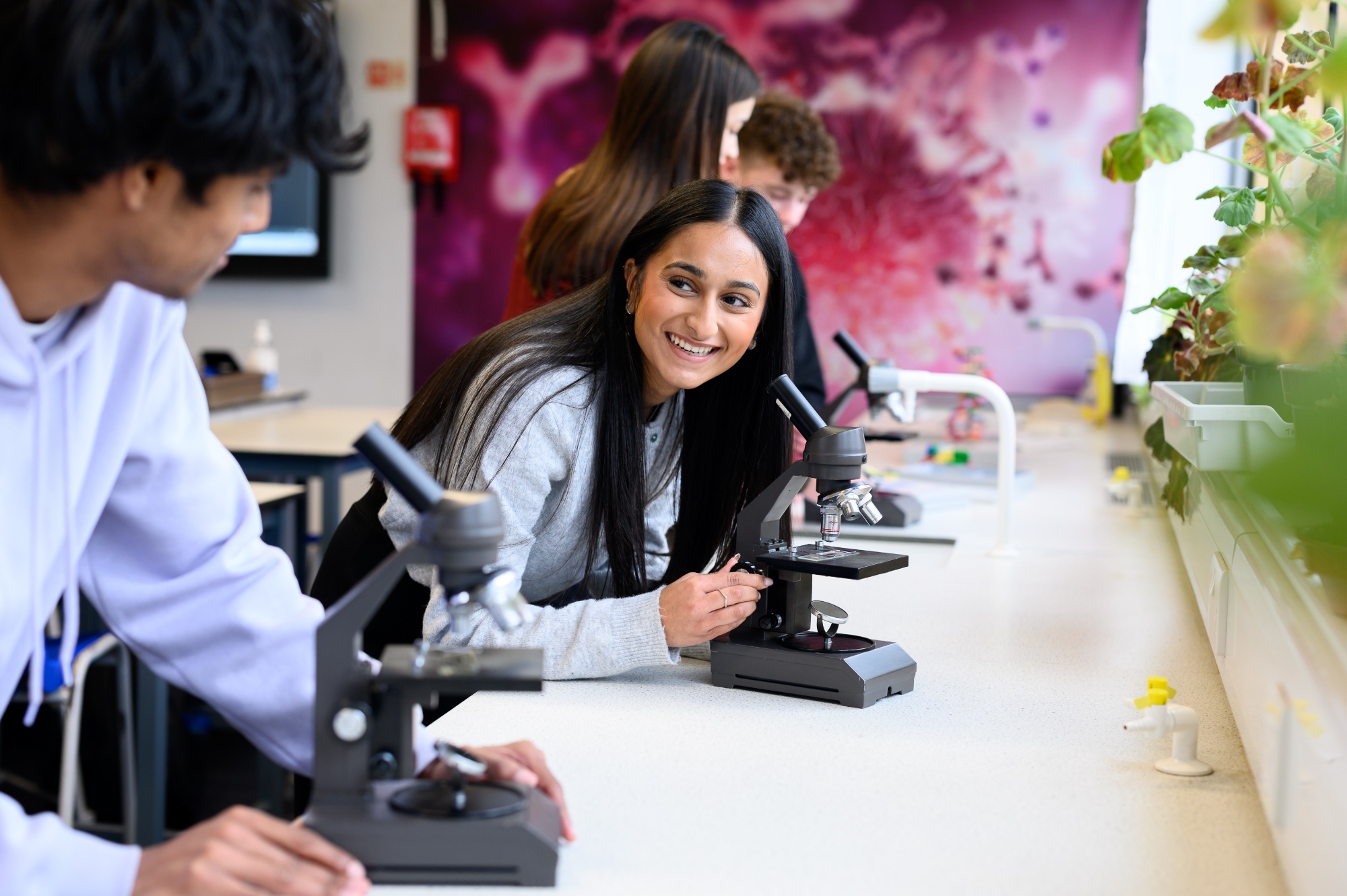Biology
Studying A Level Biology will give you the chance to learn in detail about how the living world works, from biological molecules in cells to whole ecological systems. This course will help you to develop a much more detailed scientific knowledge and understanding of the subject.
As well as gaining a sound understanding of biological principles, you will become aware of advances in technology relevant to Biology and recognise the value and responsible use of Biology in society.
The AQA specification is an exciting way to learn Biology. It is taught in a way that enables you to put the biological principles and processes into context, making them seem more relevant. Biology is also a desirable subject for many career pathways. Depending on what you study at university, you could go on to become a doctor, a lab technician, a forensic scientist or even a teacher.

Entry Requirements
Grade 6/6 in Science or a Grade 6 in GCSE Biology & Grade 5 in Maths
Content
The AQA Biology A Level has eight components:
In Year 1 you will study:
| Component 1: | Biological molecule |
| Component 2: | Cells |
| Component 3: | Organisms exchange substances with their environment |
| Component 4: | Genetic information, variation and relationships between organisms |
In Year 2 you will study:
| Component 5: | Energy transfers in and between organisms |
| Component 6: | Organisms response to changes in their internal and external environments |
| Component 7: | Genetics, populations, evolution and ecosystems |
| Component 8: | The control of gene expression |
Assessment
100% Exams: 3 externally assessed exams
Paper 1 (35%) Year 1 content.
Paper 2 (35%) Year 2 content.
Paper 3 (30%) Combined Year 1 & 2 content.
Am I right for this course?
Biology A Level will give you the skills to make connections and associations with all living things around you. Biology literally means the study of life and if that’s not important, what is? Biology is a broad topic and within it you will find numerous specific areas of interest, plus it opens the door to a fantastic range of interesting careers.
Course Highlights
| Hands-on Experience: | Work in well-equipped science laboratories |
| Personal Development: | Explore and develop your individual scientific practice |
| Enrichment: |
Take part in the Cambridge Biology challenge with other students from across the country. Meet experts who use their Biological skills whilst working in industry. Put your sampling skills into practice out in nature on the Biology field trip. |
Where Next?
Studying A-level Biology at university gives you all sorts of exciting career options, including: Doctor, Clinical molecular geneticist, Nature conservation officer, Pharmacologist, Research scientist, Vet, Secondary school teacher, Marine biologist or a Dentist.
FAQ's
- Do I need Biology to be a doctor?
No, it's not compulsory, but 95% of medical students do have the A-level, so it's highly recommended. - Is it hard?
The topics you study are complex and will take time to learn, but they are also fascinating and help you understand and appreciate the world around you so well worth it. - Why do I need Maths?
Mathematics is a quantitative language that allows scientists to describe relationships and phenomena objectively. All areas of science make use of Maths, including Biology, and you need to be comfortable with numbers to access the course.
Biology A Level Teaching Staff

Subject Leader for Science
j.arnold@stwilfrids.com

Biology Teacher
a.arshad@stwilfrids.com

Biology Teacher
c.tibble@stwilfrids.com

Biology Teacher
p.maynard@stwilfrids.com
